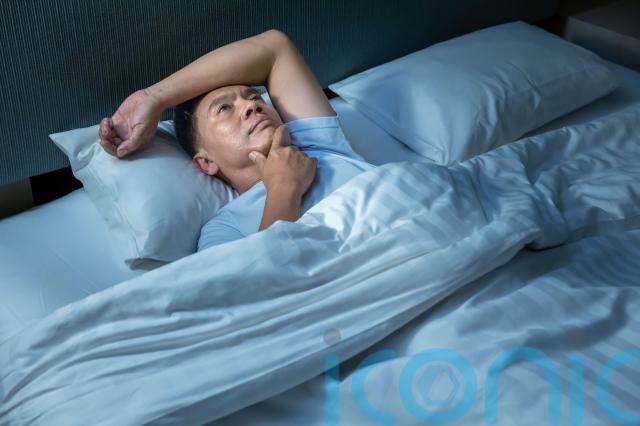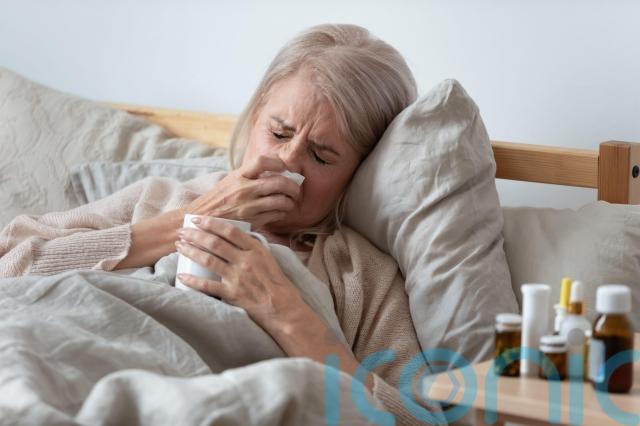
Shorter, darker days and a drop in temperature can have a noticeable effect on how active we feel during the day – but what about at night?
From restless nights in a chilly bedroom to waking up groggier than usual, winter can disrupt our sleep in many surprising ways.
To find out exactly what is going on, we spoke to Dr David Garley, GP and director of The Better Sleep Clinic. He explained how the colder weather and changes in daytime activity can influence our sleep at this time of the year, and shared some practical tips on how to help you stay well-rested throughout the colder months.
What happens to your body temperature as you fall asleep?
“When you move from the wake phase to the sleep phase of your circadian rhythm, that’s marked with a drop in your core body temperature of about 0.5°C to 1.5°C,” explains Garley. “So, if you’re very hot, you may struggle to make that transition, and that is why many people struggle to sleep in the summer.”
However, if you room is too cold, that can also be an issue.
“You want your bedroom to be cool,” advises the GP. “This exact temperature will be different for different people. You don’t want your room to be icy cold, but on the cooler side is definitely helpful.”
Can really cold temperatures affect your ability to get to sleep?

“If it’s really cold, then your body will be focused on maintaining temperature rather than slipping into sleep,” explains Garley. “For example, if you’re shivering in bed then you’re unlikely to fall asleep. In that situation, you do need to find ways to warm up your environment a bit.”
Can cold temperatures affect the quality of your sleep?
“People often only think about the number of hours they’ve slept, but it’s also important to think about whether you reach those deep stages of sleep,” says Garley. “If you get what we call these ‘arousals’ from sleep [such as extreme or sudden coldness], they won’t always necessarily wake you up entirely, but they can pull you into the lighter stages of sleep which are less refreshing.
“So, if your body has shifted focus to maintaining body temperature, you may find that you have shallower sleep or actually wake up.”
This happens a lot in camping, for example.
“Campers often find that around 3am in the morning, when there’s that real temperature drop, that they wake up and feel absolutely frozen solid,” says Garley.
Can winter-related illnesses disrupt our sleep quality and quantity?

“If you have got inflamed airways, your nose is running, you’ve got a cough and a sore throat you will probably find it harder to fall asleep,” says Garley.
Also, these symptoms may increase your likelihood of snoring.
“A lot of people find that they only snore if they have got a cold or if they’ve got hay fever,” says Garley. “If your airway is a bit more swollen and a bit more narrow, you are more likely to snore more.”
Something like a common cold could also potentially worsen the symptoms of sleep disorders such as obstructive sleep apnea.
“Sleep apnea is a sleep disorder associated with snoring, where your upper airway repeatedly closes as you sleep and you get these pauses in your breathing which leads to really fragmented sleep,” explains the GP.

“So, if you’re already on the cusp of obstructive sleep apnea and then you get a cold, you might find that you actually do get clinically significant obstructive sleep happening with really fragmented and poor quality sleep.”
Can Seasonal Affective Disorder (SAD) impact your sleep?
Mental health and sleep are closely intertwined.
“Anxiety can make it quite difficult to fall asleep and depression can cause early morning awakening, but research also shows that this actually works the other way around, too,” says Garley. “Research suggests that poor sleep can cause anxiety and depression, which means there’s a system which can feed into itself.
“Therefore, if you’re getting depressed as a result of seasonal factors, then that low mood can certainly impact your sleep.”
Is there any other ways that cold weather may impact our sleep?
This seasonal change and wintry weather often alters people’s routines, which can have a knock-on effect to their sleep.
“The shorter, darker days mean that people often don’t go out socialising as much, stop exercising and/or aren’t getting that exposure to sunlight, and these factors are really important for maintaining good quality sleep,” highlights Garley.
Here are Garley’s top tips for improving your sleep this winter…
Keep to a routine
“Despite it being darker and colder, do try to keep your routine as normal as possible,” advises Garley. “Don’t let the seasons push you around. You want to feel that you’re in the driving seat of your own life.”
Stay active

“When you exercise, you tend to build up a stronger drive for sleep at night,” says Garley. “If the cold, dark weather is stopping you, then try to find an indoor activity to keep that momentum going.”
Layer up in the night
“With temperature control and sleep, using layers can be quite good,” recommends Garley. “If you put an enormous duvet on at night, then you might wake up all sweaty in the middle of the night, so using multiple thinner layers can be a good way to manage that.”
Keep your room at a cool temperature
Find a temperature that works for you. “You want your bedroom to be cool, but not cold,” recommends Garley.
Go for a walk

“Go outside into the daylight on your lunch break,” recommends Garley. “Getting that light dose is so important for maintaining that consistent circadian rhythm.”
Don’t force it
If you are struggling to sleep, get up and do a relaxing activity until you feel sleepy again, then return to bed.
“If you can’t sleep, try not to force it,” says Garley. “If you lie in bed and get annoyed, then that independently is going to stop you from sleeping.”
Subscribe or register today to discover more from DonegalLive.ie
Buy the e-paper of the Donegal Democrat, Donegal People's Press, Donegal Post and Inish Times here for instant access to Donegal's premier news titles.
Keep up with the latest news from Donegal with our daily newsletter featuring the most important stories of the day delivered to your inbox every evening at 5pm.